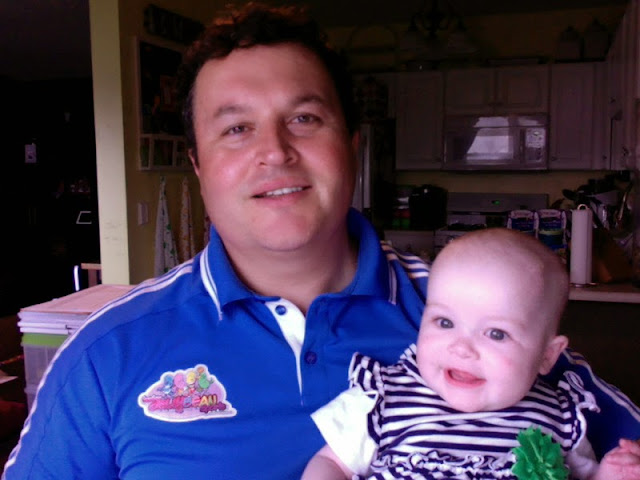How young is too young for sports? | Dr. Bradley J. Kayden
For generations, parents have been confused by notions driven by research and the media that young children have no place in sports. Some parents have heeded the advice, others knowingly ignored it, while many others remain blissfully ignorant.
 |
| Dr. Brad Kayden |
The entry point into sport for children is, as defined by research, age six. The sports research is irrefutably wrong. If it is going to be correct, it needs to be updated to read, "The entry point into 'competitive' sport for children is age six." Otherwise, there are too many examples to list of children entering sports earlier.
 |
| A Family of Early Learners |
What sports research is supposed to do is help us clarify sports. In this case, its incomplete definition of children's entry point has potentially led to the grave misunderstandings surrounding early learning in sport.
Every process, if it is to be called a process has a natural order, a beginning, middle and end. The natural order of sport is incomplete because it fails to include early learning in sport, the absolute beginning of sports. Without recognizing this five year phase, sports, in general, becomes less of a natural order and more simply a phenomenon, difficult to fully understand.
Why must we ask, "How young is too young for sports?"
The reason it is necessary to ask, how young is too young for sport is because sports natural order is incomplete. It is more representative of a misunderstood phenomenon than a process to able to be easily followed. And since we know very little about how sport influences children, birth to age five, many people have had to guess about how early learning in sport works.
It is time to stop guessing. Before we can do this though, it is necessary to recognize some of the damage that has already been done. Where sports research has failed to define sports natural order, the media has, essentially, capitalized on the sports process being a phenomenon.
The media thrives on phenomenons like the five-year early learning age gap. They like it because it is possible to exploit society's lack of knowledge around early learning in sport and use parents' diverging values against them to create readership and buzz.
The media's stories in many ways have grossly represented early learning in sports. They have overestimated the agendas of the parents of early learners. According to the media many are self-serving ego maniacs living vicariously through their children's sports experiences in order to win them athletic glory, athletic scholarships and professional contracts.
This only makes people afraid and left to still ask, how young is too young for sports?
The reality is that for most parents of early learners, it is neither a collegiate athletic scholarship nor a professional sports contract that they are seeking for their children. Yes, competitive leagues for early learners do exist and there are die-hard parents who do long for this sort of thing. But for most parents, they are just happy non-competitive sports programs exist for their early learners to participate.
Early Learning Non-Competitive Sports Programs
How young is too young for sport? The following are some examples of non-competitive early learning sports programs that children can become involved in as early as 3-6 months old:
- swimming
- gymnastics
- karate
- parent-tot sports classes
Early Learning Introductory Competitive Programs
The natural order for early learning in sport does include introductory competitive sports opportunities. Often an extension of the non-competitive early learning sports programs, opportunities begin to exist for children around the ages of 5 and 6, and can include:
- swimming
- gymnastics
- dance
- karate
- sports leagues
Early Learning's Natural Order
In case you were interested in how the natural order works for early learning in sports, here it is:
- free play
- non-competitive sport
- introductory competitive sport
Edited October 1, 2015
Copyright 2007-2015, Dr. Brad Kayden. All rights reserved
Copyright 2007-2015, Dr. Brad Kayden. All rights reserved

Comments
Post a Comment